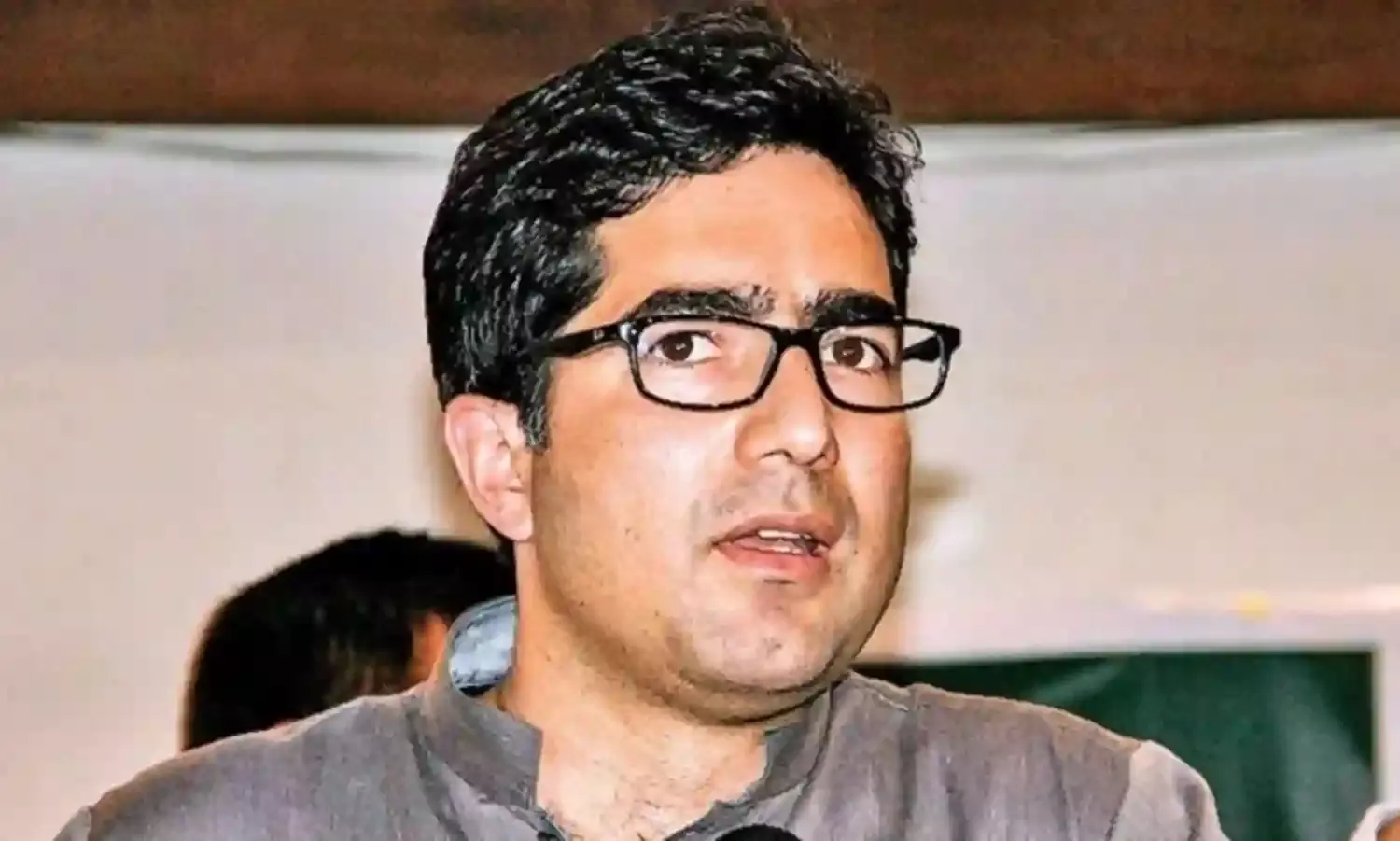Shah Faesal - From National Hero to Villain in Nine Short Years
Faesal’s plight sums up the case of all mainstream politics in Kashmir

Almost a decade ago, on May 6, 2010 a new “Indian icon” was born in Kashmir – Shah Faesal.
Suddenly, one 26-year old Kashmiri was supposed to be a “role model” for every youngster who lived in the conflict torn valley.
A role model especially for “rogue elements” and “stone pelters” and “miscreants”, for Azadi enthusiasts and plebiscite seekers and India haters. For Pakistan lovers. And for everyone else.
The Indian media found a week’s content. “Inspirational story of a boy whose father was killed by separatists” flashed across the news screens, with hectoring anchors at their loudest giving sermons to the youth of Kashmir. Sermons about whom to follow and whom not to.
For them the Kashmiri youth never seemed to have any agency at all – but let’s discuss that some other time.
“Kashmiri youth should learn from him,” exclaimed every other self-certified expert on prime time. It seemed Faesal had overcome the trauma inflicted by “secessionist elements” to become the first Kashmiri ever to top India’s prestigious civil service examinations.
He was a national hero. Nine years later, he is a national villain.
Faesal now needs to be placed under detention to prevent him from “inciting” the very same “rogue elements” and “miscreants” he was earlier supposed to “inspire”.
Inspire and incite: quite the lexical turnaround!
Faesal has now become an “anti-national” and an ISI agent – at least for many Indian leaders and nationalists (read jingoists).
In 2010, when Faesal topped the Indian Administrative Service he talked about serving the country. He talked about bringing change. Perhaps he couldn’t, and that’s why he stands where he is now.
But back then, for the average Indian nationalist he was an “answer” to those who believed in separatism.
The rejoinder they got from him, almost a decade later, was “Now you can be either be a separatist or a stooge in Kashmir.” He said this for reasons that are discernible to them. To him. And to everyone.
Not that the transition or reaction was abrupt. The anger and angst had perhaps accumulated over the years.
Faesal had started to tweet extensively against the Indian state and “system” even before he left the IAS earlier this year, “to protest against the unabated killings in Kashmir and lack of any sincere reach-out from the Union Government.”
Probably even after resigning Faesal still had hopes of a solution within the realm of a similar state system. He told the public there were institutions of democracy which would protect the Constitution. He floated a new political organisation, the Jammu and Kashmir People’s Party, which envisioned a solution to the Kashmir conundrum within the “ambit” of the Indian Constitution and electoral politics.
The same Constitution which in his own words now stands “murdered in broad daylight” after the revocation of the special status of Jammu and Kashmir.
“I am not going to be a stooge. One clarity which this step has brought unto all of us, is that those people who believed India would not betray this generation of Kashmiris have been wronged… Those in the mainstream have been betrayed,” Faesal said in an interview with the BBC shortly before being detained at Delhi’s Indira Gandhi International Airport on his way to the US.
Faesal’s plight sums up the case of all mainstream politics in Kashmir. For seven decades, despite the presence of a popular sentiment against India, they batted for India in Kashmir, only to find themselves being backstabbed by ruling dispensations at any point in time… Again and again and again.
Not that Faesal’s topping the exam nine summers ago had no bearing on the minds of Kashmiri youth. In the six decades before Faesal, only nine Kashmiri Muslims had passed through into the Indian civil services. In the first three years after him, 13 qualified.
To say that Faesal’s selection instilled in Kashmiri youth a sense of integration with the Indian Union would be a highly misleading statement. However, there was surely an argument evolving, that by being in the bureaucracy Kashmiri youth may be able to provide some relief to the people of the Valley.
“It has changed now. I don’t know how to apply for the examination. Bureaucrats were already seen as facilitators of the occupation, now they will be seen as collaborators,” says Samir Wali (name changed) who left his job at a multinational company to pursue his dreams of being a civil servant in Kashmir.
The despondency is not just discernible in Kashmir. 33-year-old IAS officer Kannan Gopinathan from the southern state of Kerala also resigned soon after August 5. “Not that my resignation will cause anything even worth a flutter. But one has one’s own conscience to answer to, I guess…
“Even when a former IAS officer was detained from the airport, there was a complete lack of response from civil society. It seems like most in this country are okay with this,” Gopinathan told a media outlet after resigning.
With Faesal’s career in administration already over, the crackdown on him and other so called “mainstream leaders” in Kashmir makes it seem that he has got out in politics too - without even facing a ball, as we say in cricketing terms.



